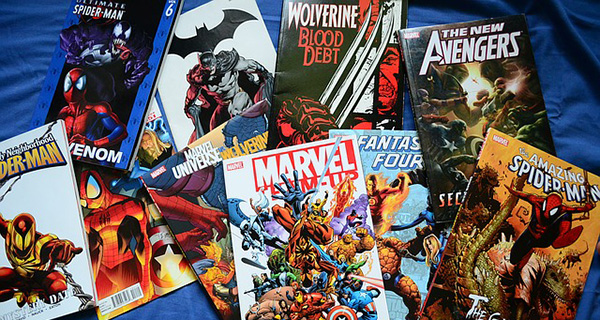
The movie Captain Marvel is a stunning box office success. Finally, it seems, an historic wrong has been arrested. Females have broken the male hegemony on physical violence and taken their rightful place in the annals of warrior gods.
Females aren’t the only new members of this celebrated superhero club. There’s Black Panther, Moon Girl, the Totally Awesome Hulk (Amadeus Cho) and other minority characters.
Why does this new inclusive superhero regime matter to so many people?
Because superheroes have become the new gods and Marvel is a new brand of religion in a secularizing post-Christian society.
For many young people, superheroes have displaced traditional beliefs. The superhero role is similar to the ancient pagan gods they resemble. These new gods speak the truth and model the behaviours, values and norms of an increasingly diverse 21st-century society.
But aren’t we overstating things? After all, religions are serious institutions, vital to social cohesion. In fact, religion is perhaps the only constant for homo sapiens; it appears to be present in all cultures, ancient and modern.
Christianity, for instance, has played a critical role in shaping western life and culture over several millennia. Certainly, Christian faith plays an important support role for many people, providing conviction in the face of spiritual and/or metaphysical uncertainty.
But religion also plays a social role, modelling behaviour. Jesus is, of course, one of the world’s most important role models; he stood for love, kindness, compassion, honesty, service, self-sacrifice and mercy.
However, there’s also a social power dynamic to all religions.
Humans, as the ancient Greek philosopher Aristotle understood, are social animals. Indeed, humans are pack animals like many other mammals. We’re hard-wired to order society along predictable lines: sorting individuals into castes, classes and other hierarchical structures for social stability and survival purposes.
Like me, you may have asked yourself why Christianity is so wedded to the Holy Trinity, the idea that God is composed of the Father, Son and Holy Spirit?
This three-in-one God is a puzzle for many and was the source of violent reaction among ancient Christians when Christianity was adopted as the formal religion of the Roman Empire.
The Holy Trinity issue was debated and adopted at the Council of Nicaea in 325 AD. This ecumenical council was presided over by the Roman Emperor Constantine.
The Holy Trinity established that Jesus was not human, like you and I, but was an essential part of God, existing outside of humanity.
But what’s the social organizing principle at stake here?
The trinity structure mirrored and legitimized a radically different social hierarchy for Romans and their empire. From that point, the Roman Catholic Church and its priestly class (representing Jesus on Earth) would stand between God and the masses.
In other words, the new imperial religion reordered the Roman pack structure and conveniently made room for an absolute monarch in the alpha role.
It’s no surprise that Christianity with its Holy Trinity lost its appeal as western society democratized in the 20th century.
What’s replacing it is a new set of stories and principles that are being immortalized in modern superheroes. In many ways, these new superhero gods resemble the Greek and Roman gods of yore.
The Greek gods – Zeus, Poseidon, Apollo, Athena, etc. – of ancient mythology resembled humans not only in their form, but also in their nature and emotions. More importantly, the immortal gods were not separate but lived in intimate contact with mortal humans.
The old gods supported the development of classical democracies by reinforcing the spiritual authority and political autonomy of the individual. No need for priests – the average person had a direct connection to their gods. Hence their unsuitability to the power-hungry emperors of later antiquity.
The modern world is slowly embracing a new religion and, ironically, comic superheroes are its physical manifestation. They raise violent passions because we’re reinventing the essential stories that we tell ourselves about ourselves.
What’s the new moral code?
It’s about being true to the new gods and the old. The righteous use of force is back; in superheroes, it’s both necessary and justified.
Like the old gods, these mythical superheroes live intimately with us, supporting democracy. And like Christianity, they encourage human compassion, equality, diversity and social responsibility as a noble duty.
Robert McGarvey is an economic historian and former managing director of Merlin Consulting, a London, U.K.-based consulting firm. Robert’s most recent book is Futuromics: A Guide to Thriving in Capitalism’s Third Wave.
Robert is a Troy Media Thought Leader. Why aren’t you?
For interview requests, click here. You must be a Troy Media Marketplace subscriber to access our Sourcebook.
The views, opinions and positions expressed by columnists and contributors are the author’s alone. They do not inherently or expressly reflect the views, opinions and/or positions of our publication.

